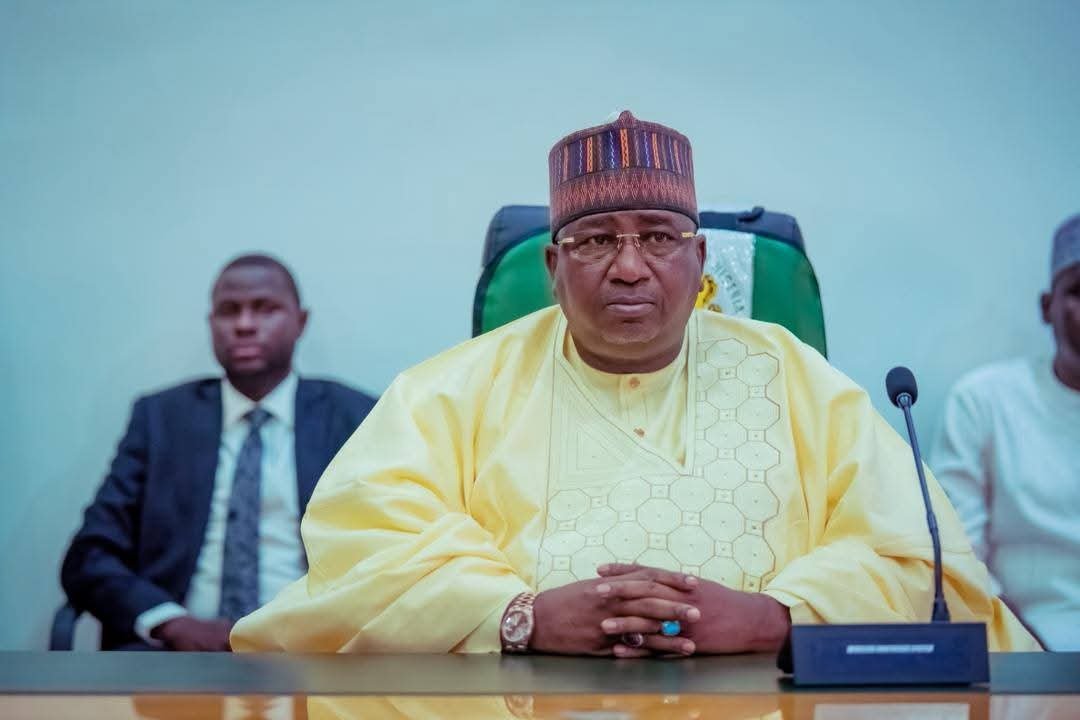EDITORIAL: Why Nigeria’s insecurity is intractable
Premium Times
In their full complement, Service Chiefs spoke truth to power in response to a parliamentary inquest into the festering insecurity in the country. Led by the Chief of Defence Staff, General Christopher Musa, they took turns to address the issues that have bedevilled their operational efficiency and effectiveness. The House of Representatives in plenary, was the scene penultimate week. Looking befuddled as the lamentations cascaded, the lawmakers may have thought twice why they invited the martial chiefs, as the revelations inadvertently hit them hard, having been part of the problem, for their actions and inertia.
While the candour and courage of the officers in reeling out the challenges were fascinating, the gravamen of their submissions was scary: that despite Nigeria being in the maelstrom of insecurity for more than a decade, with its concomitant wanton killings, kidnappings, banditry, arson, payment of ransoms, militancy and oil theft, it is not yet Uhuru. With the lack of good governance and political will, aloofness and official corruption being the real vectors of insecurity, the frustration of the Service Chiefs was discernible from their delivery.
The CDS said the situation is so bad that prison warders connive with Boko Haram members in their custody in the planning and execution of their felonious crimes, using the bank accounts of these warders to transfer operational funds. Boko Haram members kept in prison and other criminal suspects are often released by the judiciary, only for them to return to their evil enterprise to threaten the family members of soldiers, and even the soldiers themselves. Mass hunger in the land, with the October inflation figure at 27.33 per cent, and banditry and kidnapping in the North-west and North-central that are making farming impossible, are continuous security risks to the country. The CDS warned, “People are hungry. No matter how well you tell them to keep the peace, they will not because they have to eat and it aids criminality.”
Our porous borders with Niger, Chad, Cameroon and Benin, it bears repeating, worsen insecurity. The CDS emphasised that 1,000 unmanned borders of about 4,000 kilometres – 1,600 kilometres shared with our Sahelian neighbours – exacerbate the proliferation of small arms and light weapons in the country, and this has been a known fact for decades, aiding the destabilisation of the Nigerian state by Boko Haram, ISWAP and other criminal elements.
In the South-east, Simon Ekpa, living in faraway Finland, has made the region ungovernable with his treasonable and illegal orders to Igbos to sit at home and close their businesses every Monday, over the continued incarceration of Nnamdi Kalu. Thousands of citizens and security personnel who dared him have been killed by criminal gangs who take fiendish delight in enforcing Ekpa’s directives. These rogue elements have hijacked the Kalu and IPOB irredentist movement. IPOB has since washed its hands off the sit-at-home orders.
The Chief of Army Staff, Taoreed Lagbaja, was quick to remind all that, “We (soldiers) are not magicians.” This is incontestable; more so when the military have been overstretched and involved in asymmetric combat duties and policing responsibilities in about 33 states, outside their professional remit. The Inspector-General of Police, Kayode Egbetokun, drew attention to the shortfall in police personnel, which inexorably puts the policing ratio at 1 to 1000 citizens, as against the UN benchmark of 1- 400 persons. Laughably, he shied away from the fact that over 100,000 police personnel protect Nigerian VIPs, in a transactional abuse that is at the expense of the larger populace. The shortage of at least four operational vehicles for each of the 1,537 police divisions in Nigeria’s 774 Local Government Areas has debilitating effects.
According to the Chief of Air Force, Hassan Abubakar, the rising cost of JetA1, or aviation fuel, and the mismatch between its present price of N1,050 per litre and the N360 budgeted for it, is an operational challenge. Nor do these armed services have a different foreign exchange market or regime for the ease of procurement of their fighting equipment.
Given the canvas the force chiefs painted, we are persuaded to be worried that the road to redemption is still long, made so by the failure of leadership over the years. Within 45 days of President Bola Tinubu being in office, data from SBM Intelligence reveals that about 629 people were killed, pointing to the fact that the high incidence of carnage during the Muhammadu Buhari regime, which saw the death of 63,111 people in seven years, according to the Nigeria Security Tracker, is not likely to trend down significantly any time soon. At the end of 2020, the UNDP data shows that 350,000 people were killed by the Islamist insurgency in the North-East.
Tinubu should listen to the Service Chiefs and free his government from Buhari’s double standards in fighting terrorism and the unabashed disregard for the rule of law. Nigeria would have by now smashed the terrorism financing ring fuelling its insurgencies if the 400 terror financiers that the United Arab Emirates (UAE), helped it to identify in April 2021 were prosecuted in tandem with anti-terrorism law.
In the UAE, Messres Abubakar Ado Musa, Salihu Yusuf Adamu, Bashir Ali Yusuf, Mohammed Ibrahim Isa, Ibrahim Ali Alhasan and Surajo Abubakar Muhammad were promptly arrested, put on trial and convicted. In one fell swoop, they transferred $782,000 from Dubai to Nigeria. While Salihu Adamu received a life sentence, Surajo and others were slammed with 10-year jail terms each. Ironically, more than two-and-a-half years later, Nigeria is still shielding them. Duplicity such as this will neuter whatever remedy the N3.25 trillion in the 2024 budget for security is set to achieve.
These contradictions give amplitude to the concerns expressed by the military chiefs. “So, it gets to a stage where the security forces are not even willing to do anything,” one of them starkly told members of the House of Representatives. When soldiers in war reach their nadir, to the point of echoing it due to irresponsible governance and an economy in ruins, the situation becomes even more eerie.
It smacks of incompetence in the handling of our foreign relations and diplomacy that Ekpa’s nuisance has not been taken up with Finland by the authorities in Abuja before now, for the CDS to make that plea. The South-east would have been a peaceful region today and police personnel safe at their various duty posts, if the Federal Government had not disobeyed the 2022 Court of Appeal judgement that discharged Kalu of the 15 terrorism counts brought against him, on account of his extraordinary rendition from Kenya.
No general fights on multiple fronts at the same time and expects victory, except one who is under delusion. But that is the vortex the Federal Government has thrown itself into with a high level of insecurity almost in the six geopolitical zones of the country. Non-state actors are in control of much of Nigeria’s territory. It is not only the police that have personnel shortages; the army suffers the same affliction, going by a former Minister of Defence, Bashir Magashi’s declaration in February. He said 12,000 recruits are required annually over a period of time, for the service to meet up with the challenge of safeguarding Nigeria’s estimated 220 million people.
Increasing the numerical strength of the military or police and procuring the equipment they need for combat readiness and providing good governance that mitigates criminality, all require a huge capital outlay. Therefore, the political class should cease putting our security agencies in harm’s way by discharging the responsibilities for which they are elected. We have heard enough of parliamentary summons of Service Chiefs without the status quo changing.
The N57.6 billion splurged on Toyota SUVs for the 360 members of the House, purportedly for their oversight functions, would have been better spent on securing the lives of Nigerians. Instead of guarding the national treasury, as the constitution vests in the House and the Senate the powers to do so, they rather look the other way while looters treat it as spoils of war.
The Nigeria Extractive Industries Transparency Initiative (NIETI) says the country lost $46.16 billion to oil theft between 2009 and 2020, while the House has uncovered $9 billion in unremitted fines by oil companies for gas flaring. This is where it might unfortunately end. The Supreme Court’s $62 billion 2017 judgment debt due to Nigeria from joint-venture profit sharing and another $17 billion confirmed as the cost of stolen crude oil by some oil majors, which are yet unrecovered, underline our pessimism.
Regrettably, Tinubu relishes fresh borrowing abroad, instead of using all the powers at his disposal to remedy all this. No matter all the diplomatic fizz his trips abroad generate on foreign direct investments, they will amount to nothing if the country is not safe and secure. Investors are like former President Bill Clinton, who told a joint session of the National Assembly during a state visit in 2000 about issues here: “I follow more closely than you might imagine.”
Tuesday, February 24, 2026
Investigative Journalism



